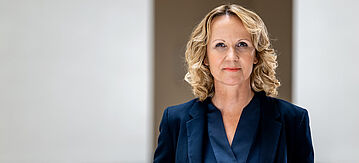– Check against delivery –
Minister Willingmann,
President Böhmer,
Elbe district commissioners,
Mayors of biosphere communities and cities,
Mr Puhlmann,
EuroMAB participants,
welcome to Lutherstadt Wittenberg on the River Elbe. I am delighted to welcome you on behalf of the German government. Groundbreaking new ideas were spread across the world from this historical place. There are four UNESCO World Heritage Sites in Wittenberg and more nearby, some of which you will visit.
This is not the only reason why this region is particularly important to me. I was born and raised not far from here and the Elbe River Landscape had a formative influence on me. Back then, in the GDR, the Elbe and its tributaries were misused as dumps for industrial waste. Today that is no longer the case. The River Elbe is clean again. And what is more: the Middle Elbe and its floodplains are a holiday attraction for many people. The biosphere reserve is a magnet for visitors that offers many options, including business opportunities.
The same is true for every UNESCO biosphere reserve worldwide. This is why I am delighted that representatives from so many different regions have come here today to exchange experiences and to network. The EuroMAB Network is the largest and oldest regional network of the UNESCO biosphere reserves. We unite over 300 biosphere reserves and 41 countries. This is the first time the EuroMAB Conference is taking place in Germany. And incidentally, at one of our two oldest biosphere reserves.
Fifty years on, the idea of the biosphere reserve is still current: developing and rolling out sustainable business practices that serve as a model. This idea is being met with growing approval at both national and global level.
The story of biosphere reserves is one of success and each chapter of the story presents new challenges. Today it is especially important to tackle the impacts of the climate crisis and biodiversity loss.
Here on the Elbe, for example, we have learnt the hard way how important healthy floodplains are for protecting against flooding and drought. Both these events are becoming more frequent and extreme due to the climate crisis.
In the face of the climate crisis, it is becoming increasingly important to adopt sustainable business practices, trying out new methods and introducing them on a large scale. As is common practice in biosphere reserves. This requires regions like those covered by EuroMAB to lead the way and put new ideas into practice. And also, practice-oriented research that supports the introduction of new ideas. In my view, biosphere reserves are predestined for this.
The MAB programme should be geared more strongly towards mitigating the climate crisis. We should take this message with us to the World Conference on Biosphere Reserves in China next year, where we will adopt a strategy for the coming years.
In many countries and regions, in Germany too, we are observing populists trying to turn back the wheel of time. They are trying to hinder progress and justice, and are calling democracy into question. This is putting pressure on environmental protection and nature conservation.
In times like these, your commitment to the future and to developing biosphere reserves is especially important. This is because they very effectively demonstrate that nature can only strengthen us against the climate crisis if we strengthen nature too. So I would like to sincerely thank you for your commitment.
In the coming days, you will have the opportunity to contemplate the nature here on the Elbe. It is worth visiting as the Elbe River Landscape UNESCO Biosphere Reserve is a unique natural and cultural landscape that stretches across five federal states and roughly 400 river kilometres. The largest contiguous alluvial forests in Central Europe can be found on the banks of the Elbe and the region is home to around 1,200 Eurasian beavers.
I wish you all interesting discussions, lots of new ideas and exciting insights into other regions. Thank you very much.

